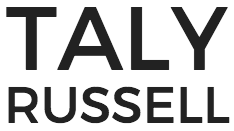It takes creativity and resourcefulness to find the right candidates as a busy recruiter. Many prospective hires have their hard skills finely tuned, however what about soft skills that can be harder to assess?
Even for the most experienced interviewers it can be difficult to tackle the assessment of things like empathy. However, soft skills can be crucial for the post-hire performance of candidates. How we interact with others and perform tasks are considered interpersonal or soft skills. This can translate to our communication and productivity abilities. It takes a combination of both hard and soft skills to help create a diverse, successful workplace.
First, make sure that as a recruiter you’re aware of the major soft skills to look for in a candidate. Things such as creativity, flexibility, conflict resolution, empathy, and problem solving are all important qualities in an employee. These qualities help everyone to get along and complete work efficiently.
As many recruiters know, it’s easy to ask for specific skills during an interview, however it can be tricky to be sure that the people you’re asking actually possess them. A great candidate will address soft skills as well as the more common attributes in their resumes and cover letters.
While resumes give us an idea about someone, in their own words, it’s always the actual in-person interview that gives us the most information about someone. Without directly addressing soft skills you can look for certain instances that show you whether a candidate has the qualities you’re looking for. Do they arrive on time, showing dependability and punctuality? Is there mention of the importance of team spirit? Can they actively listen by maintaining eye contact and asking good questions? If someone tells a story that highlights the job requirements you’re looking for, this can show effective communication. Giving credit to other team members when necessary can point out that an individual has integrity.
Conducting a behavior-based interview is a great way to elicit how a candidate handles various scenarios. The “STAR” method of interviewing stands for Situation, Task, Action, and Result. When you ask someone how they’ve handled a specific type of situation hopefully during their response they weave in interpersonal skills that they’ve used during conflict resolution or moments that required critical thinking. You want to know how they handle delicate matters, and by using the STAR method you can get a better understanding of the individual.
Aside from the interview, when checking references it’s a great idea to go beyond managers. Ask candidates for not just former employers, but coworker references as well. Peers can share information than a manager may not be able to. Insight as to whether someone is dependable or how they handle stress can be helpful in deciding on a new hire.
It takes a measured approach to find a candidate with the blended skills of both hard and soft. Interpersonal skills are crucial to someone’s success. When you’re learning about different candidates, it’s important to think carefully about the way in which you’re learning about the individual. It pays off in the long run to invest the time and thought that goes into deciding if someone is right for the job.

